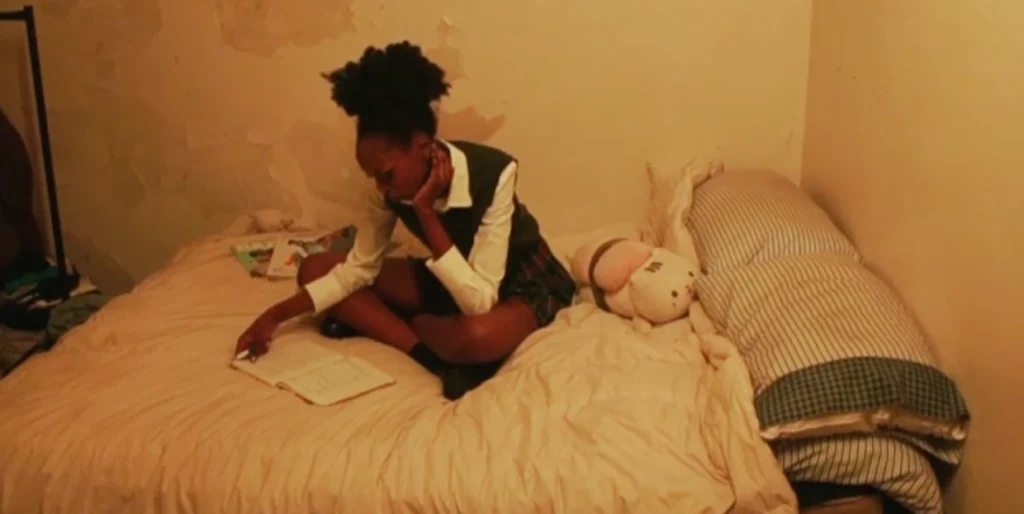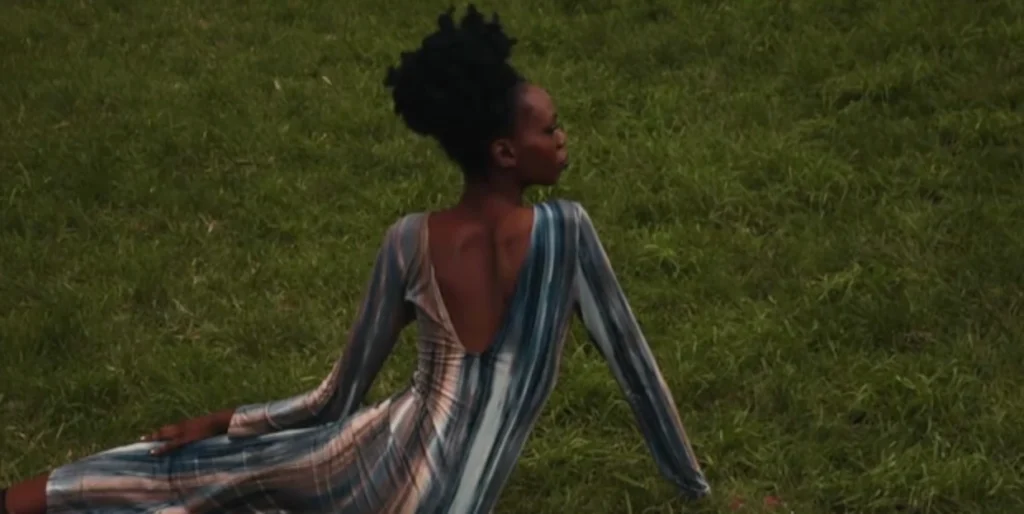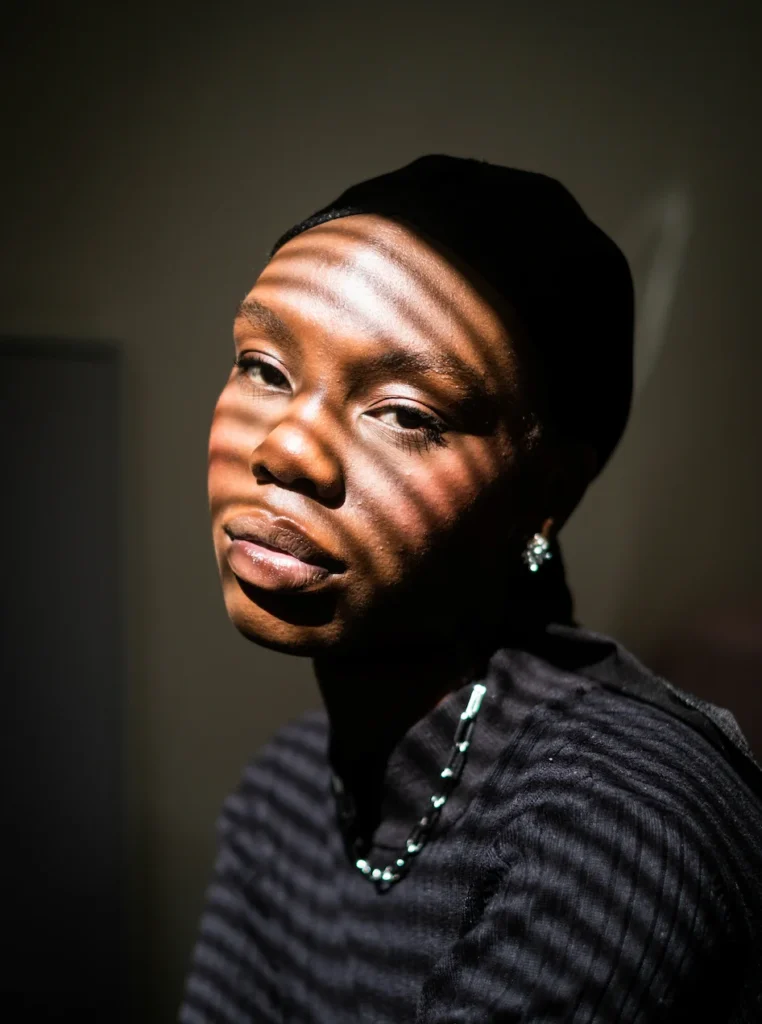
As a diaspora, Akelo shares common issues of searching for identity, positioning, and the idea of a home in her poems that touch on subjects such as naivety, culture, trauma, adolescence, family, and love. Growing up as a South Sudanese in Australia, she has always been interested in the visual media and fascinated with storytelling. Akelo speaks to us about her first short film “Daughter of the Nile” which will be her debut in both writing and film.
The poems were to be originally presented in an interactive exhibition for Akelo wished to provide a complete experience to the audience, as poems and written words alone would not do her idea any justice. But with the hit of the pandemic, the artist started exploring different ways to present her work and challenge her abilities and the film was a result of experimenting with new mediums for Akelo’s expression and creativity.
With Akelo as the main subject in the visuals, the film opens with the first poem “Monday Braids At School” written across the screen with no voice-over to amplify the words as Akelo mentioned to us. The warm tones of these scenes, the character’s apparel, and the textbook reflect a nostalgia for what appears to be Akelo’s remembrance of her mornings of school days. As a black child with textured hair, she describes her relationship with her hair and how it is an extension of her being, her core, and her blackness.
“Silky girl, you may turn to rock “I beg leave my extensions of being. For me and my black self”
As a child, Akelo’s constant move from one country to another had everything to do with what she writes and how she sees herself. Born in Sudan then moving to Egypt before settling in Australia, each move was a drastic change, especially at a young age. That memory was encapsulated and to her, each place is saved and still in her mind as she always tries to put into words the accumulation of those times.
Akelo expressed those experiences in the second poem “Lost in Translation” where she voices over the words that speak of her time in Sudan and Egypt.
“I find myself boundless, like Sudan once was”
Appears in the scene a man whose hair is being braided by Akelo’s character, listening and interacting with the poem that speaks of memories of her childhood, family, and distortion between cultures and being a black child in Egypt.
“I was the baby of the war. A reminder of better things”
“Lost in Translation” portrays a very emotional display of Akelo’s childhood in Egypt while struggling with identity, language, and her family’s positioning in a foreign country that can not be described as friendly to outsiders.

Heavy music plays as “Growing Pains” – the last poem – appears on the screen. One last time the character appears to us in an open green field this time, giving us her back a nostalgic feel, Akelo speaks of her relationship with her mother depicting the complex ties and emotions of family and abandonment.

“Daughter of the Nile” is Akelo’s attempt to narrate her story and her most intimate memories and it did a great job of speaking of the past and her present. She wanted to deliver a feeling everyone can grab and feel without necessarily experiencing it. With the project being this personal to her, she wanted to bring to life the entire experience and have it come from within her. Through that, she came to be the director, actress, writer, and many more roles she played yet was able to show her multi-talented self in a truthful and emotional outcome. And in the words of Akelo, Daughter of the Nile invites us to sit and remember too.
“The writing is the only constant element in the film, the visuals were there to assist the poems” Akelo
To learn more about Akelo, her poetry, and her film, visit her website and view her film here.

January 14, 2026
December 9, 2025
May 9, 2025